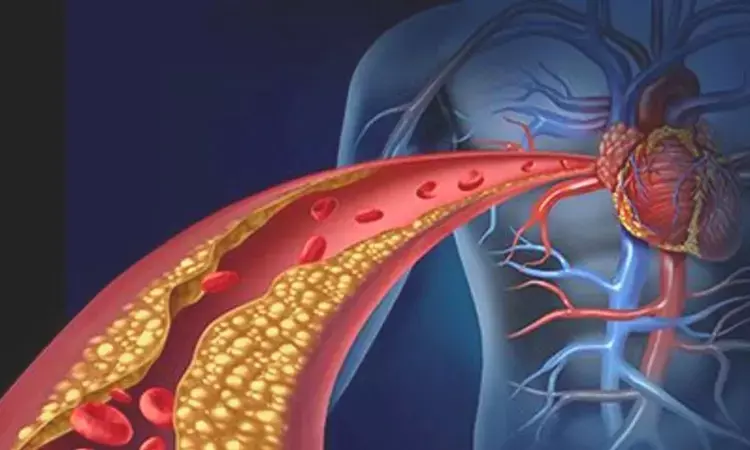- Home
- Medical news & Guidelines
- Anesthesiology
- Cardiology and CTVS
- Critical Care
- Dentistry
- Dermatology
- Diabetes and Endocrinology
- ENT
- Gastroenterology
- Medicine
- Nephrology
- Neurology
- Obstretics-Gynaecology
- Oncology
- Ophthalmology
- Orthopaedics
- Pediatrics-Neonatology
- Psychiatry
- Pulmonology
- Radiology
- Surgery
- Urology
- Laboratory Medicine
- Diet
- Nursing
- Paramedical
- Physiotherapy
- Health news
- Fact Check
- Bone Health Fact Check
- Brain Health Fact Check
- Cancer Related Fact Check
- Child Care Fact Check
- Dental and oral health fact check
- Diabetes and metabolic health fact check
- Diet and Nutrition Fact Check
- Eye and ENT Care Fact Check
- Fitness fact check
- Gut health fact check
- Heart health fact check
- Kidney health fact check
- Medical education fact check
- Men's health fact check
- Respiratory fact check
- Skin and hair care fact check
- Vaccine and Immunization fact check
- Women's health fact check
- AYUSH
- State News
- Andaman and Nicobar Islands
- Andhra Pradesh
- Arunachal Pradesh
- Assam
- Bihar
- Chandigarh
- Chattisgarh
- Dadra and Nagar Haveli
- Daman and Diu
- Delhi
- Goa
- Gujarat
- Haryana
- Himachal Pradesh
- Jammu & Kashmir
- Jharkhand
- Karnataka
- Kerala
- Ladakh
- Lakshadweep
- Madhya Pradesh
- Maharashtra
- Manipur
- Meghalaya
- Mizoram
- Nagaland
- Odisha
- Puducherry
- Punjab
- Rajasthan
- Sikkim
- Tamil Nadu
- Telangana
- Tripura
- Uttar Pradesh
- Uttrakhand
- West Bengal
- Medical Education
- Industry
Elevated calcium scores in adults without ASCVD linked to increased CV risk: JACC

USA: A recent study published in JACC Cardiovascular Imaging by Budoff MJ and colleagues aimed to determine the appropriate threshold for recommending aggressive cardiovascular (CV) risk modification in adults without a history of atherosclerotic cardiovascular disease (ASCVD) events, based on coronary artery calcification (CAC) scores. Researchers analyzed data from the CONFIRM (Coronary CT Angiography Evaluation for Clinical Outcomes: An International Multicenter) registry.
This study included a total of 4,949 patients, with 4,511 individuals having no prior history of atherosclerotic cardiovascular disease (ASCVD), and 438 with a documented history of ASCVD. The average age of the participants was 57.6 years, and 56% were male. Various cardiovascular risk factors were prevalent in this cohort, including hypertension (60%), elevated cholesterol levels (56%), diabetes mellitus (16%), and past smoking (22%).
Over a median follow-up period of 4.7 years, the study observed several key outcomes:
There were 254 (5%) deaths.
229 (5%) patients experienced a myocardial infarction (MI) event.
442 (9%) individuals had major adverse cardiovascular events (MACE).
583 (12%) participants faced MACE along with late revascularization events.
The analysis found no significant difference in the risk of MACE events between patients with a coronary artery calcification (CAC) score exceeding 300 and those with established ASCVD.
Both groups exhibited similar rates of MACE events, with 52.8 and 53.6 events per 1,000 person-years, respectively (p = 0.763).
This suggests that individuals without a history of ASCVD but with a CAC score over 300 face a comparable risk of cardiovascular events to those with established ASCVD.
Conversely, among patients without prior ASCVD, CAC scores were associated with varying levels of risk for MACE:
A CAC score of 0 was linked to a significantly lower risk (adjusted hazard ratio [aHR] of 0.31) compared to those with established ASCVD (p < 0.001).
Similarly, CAC scores ranging from 1-99 and 100-299 were associated with reduced MACE risk (aHR of 0.41 and 0.59, respectively) compared to the ASCVD group (p < 0.001 and p = 0.003, respectively).
However, a CAC score exceeding 300 did not exhibit a statistically significant difference in
MACE risk compared to individuals with prior ASCVD (aHR of 0.944, p = 0.683).
These findings underscore the importance of CAC scores in assessing cardiovascular risk among individuals without prior ASCVD. While lower CAC scores were associated with reduced MACE risk, a CAC score exceeding 300 indicated a risk level similar to that of individuals with established ASCVD. This information can guide healthcare providers in tailoring risk management strategies for their patients.
In summary, this study sheds light on the significance of CAC scores in assessing cardiovascular risk among individuals without prior ASCVD. Identifying those at increased risk based on CAC scores can guide healthcare professionals in implementing appropriate interventions to prevent adverse CV events.
Reference:
When Does a Calcium Score Equate to Secondary Prevention?: Insights From the Multinational CONFIRM Registry. JACC Cardiovasc Imaging 2023;16:1181-1189.
Dr Kamal Kant Kohli-MBBS, DTCD- a chest specialist with more than 30 years of practice and a flair for writing clinical articles, Dr Kamal Kant Kohli joined Medical Dialogues as a Chief Editor of Medical News. Besides writing articles, as an editor, he proofreads and verifies all the medical content published on Medical Dialogues including those coming from journals, studies,medical conferences,guidelines etc. Email: drkohli@medicaldialogues.in. Contact no. 011-43720751


